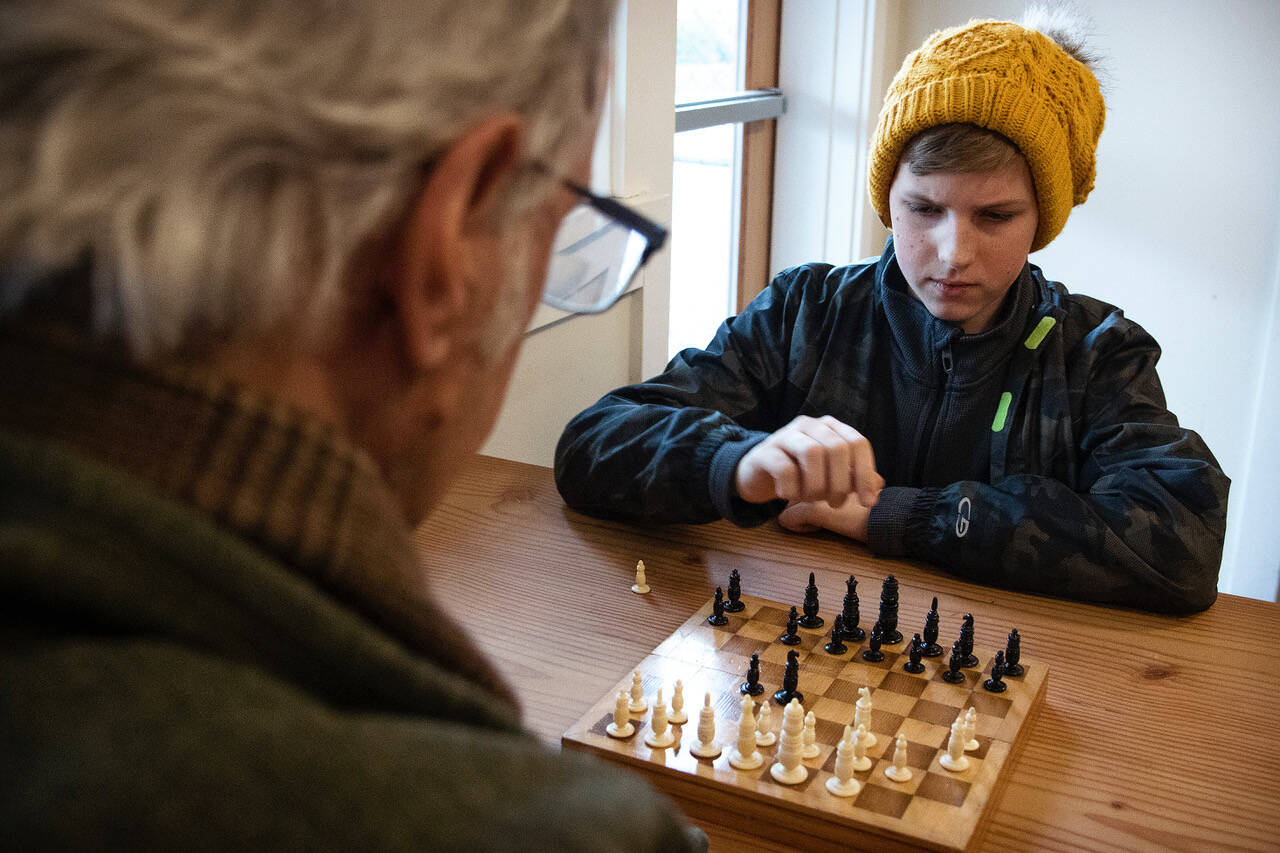A university instructor thinks tutoring might reveal a championship chess player on South Whidbey. At the same time, according to Mark Calogero, chess is a great way to improve critical thinking and problem solving for all participants, young and old.
For $25 an hour, Calogero offers spirited chess lessons and a cup of hot chocolate at Bayview’s Flower House Cafe, Coupeville Library, the Tea House in Oak Harbor and other well ventilated locations in the Langley area. The senior rate is $15 per hour. He said early adolescence is an ideal age to learn chess, so the teaching is specifically designed for young participants.
“I commuted to Seattle less when classes declined during the pandemic,” said Calogero, a cognitive psychologist and past lecturer of psychology and statistics at the University of Washington. “After teaching tennis for teenagers at South Whidbey High School during the pandemic, I saw an opportunity for chess instruction during cooler weather.”
Calogero posted a notice online, suggesting that chess might be the game for a “precocious problem solver” and offering to help students discover their natural tendencies at play.
He said there’s a highly renewed interest in chess after the award-winning 2020 Netflix series, “The Queen’s Gambit,” featuring an orphaned female teenage chess prodigy.
“For someone willing to learn, chess can be a real asset in developing abstract thinking, such as a sequence of future moves that could deliver a checkmate,” Calogero said. “Students get a better understanding of alternative thinking and the relationship of risk and accuracy. For example, Bobby Fischer gained world champion status through aggressive, yet risky, tactics.”
He said Russian players still dominate the world’s chess boards, and it’s time to develop American competitors to change that status.
According to Calogero, the website Chess.com presents the opportunity for competition worldwide at any time of day. The site, featuring real time display and post-competition analysis, is structured on artificial intelligence, which Calogero said can be good and bad.
“Some world champion players study the computer algorithms, then go beyond them with original, creative play in competing.”
The Wall Street Journal recently reported how AI showed players when to bluff and when to play straight.
By age 14, serious competitors can find themselves on the championship road by getting a coach and joining Chess.com, said Calogero.
“We’re also seeing many more women competitors and a lot of female and younger master players in recent decades. Today it is possible to become a professional player with good earnings opportunity,” Calogero noted.
“After playing about 300 games, I’m ranked below the median of players on Chess.com. By my estimate, it would take another two years to move to the 50th percentile. Someone who starts young today would have a much better chance of going much farther.”
Calogero said he hasn’t encountered many chess players on Whidbey to date, and young people are often attracted to video games instead. He said serious chess is more of an exhilarating intellectual pursuit than a board game.
Calogero can be contacted at 508-632-3249.


